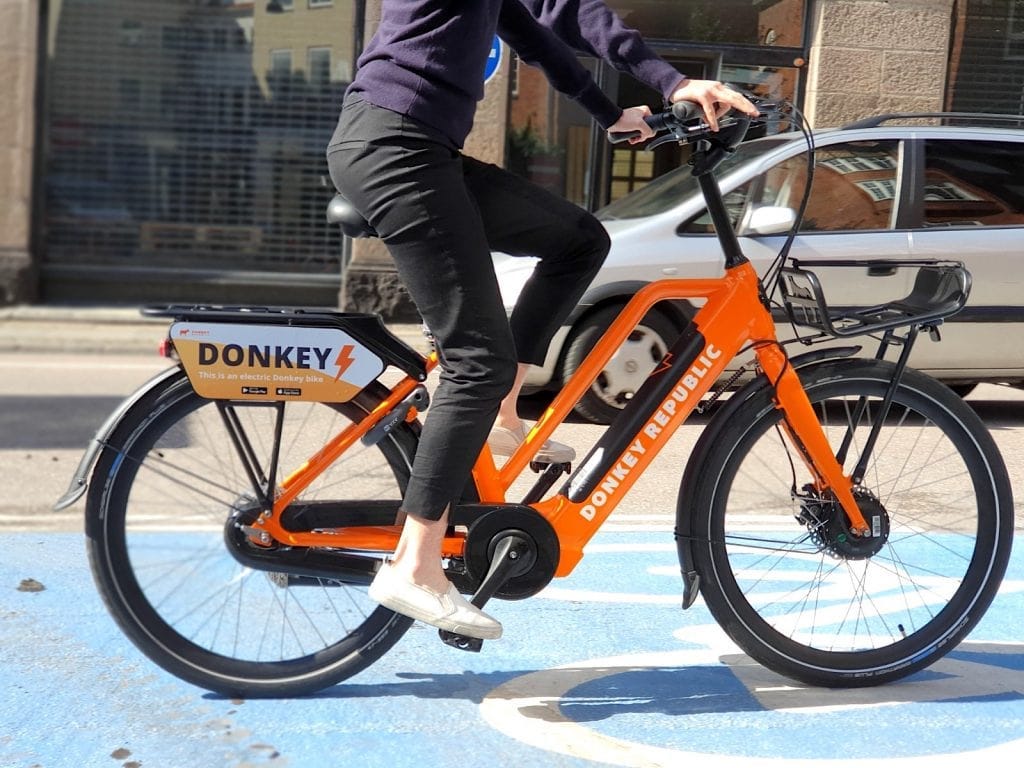Bye Bye Barriers: Removing Obstacles for Connected Vehicles
Plus: Zero Raises $120M Amid Turbulent E-Moto Landscape
Welcome to the Micromobility Newsletter, your weekly digest of important events and industry news in the world of personal transportation.
Webinar Starting Soon…
Hello - Have you registered for today’s webinar about the future of connected micromobility in about ~2 hours? We recommend checking it out if your work pertains to software-defined vehicles (SDVs). We’ll be discussing:
AI, the data revolution, and the implications for your fleet
How better connectivity is accelerating profitability for operators through less revenue leakage, better OPEX/ROI and more brand loyalty
How SDVs are being reshaped by connectivity, and how these vehicles are reshaping traditional industries
PS If you want more industry-focused content like this, make sure to buy your tickets to Micromobility America (Nov 14-15) in Southern California. Tickets to our premier tradeshow are on sale for only $250 this week.
What You Need to Know Today
Electric motorcycle maker Zero is in the process of closing a funding round for over $120M, bucking a recent trend of bankruptcies in the e-moto space. Since Zero’s last raise in 2022, several notable players, including Energica, Cake, Fuell, and Sondors, have been cut down by turbulence in the two-wheel EV market. But Zero forges ahead with the help of strategic investors like Polaris and India’s Hero MotoCorp. Rumor has it that the nearly-20-year-old company will use some of the fresh capital to develop its first minibike.
With so many electric motorcycle companies closing their doors lately, one wonders, does the current battery tech allow manufacturers to deliver enough bang for the buck for range-hungry riders?
Related: In line with rules imposed on the auto industry in 2022, the California Air Resources Board is proposing a new regulation requiring motorcycle manufacturers to offer 10% zero-emission models by 2028 and 50% by 2035.
Meanwhile Harley Davidson’s EV imprint LiveWire sold a paltry 99 electric motorcycles in Q3 2024, which means the company actually brought in nearly 3x more revenue from selling children’s electric balance bikes.
Raleigh, NC is the latest US city to offer its residents e-bike rebates. Eligible individuals can apply for a $500 voucher until November 10. Additionally a $1,500 voucher is available to individuals with incomes of 80% or less of the local median income.
The Australian state of New South Wales will at last legalize e-scooters as part of plan to alleviate congestion.
Japan’s leading shared micromobility operator, Luup, has raised nearly $20M in debt financing. The funds will be used to expand Luup’s e-bike and e-scooter fleet, aiming for a total of 30,000 units by 2025.
New York City announced more details for a $2M pilot program that allows delivery workers to trade in unsafe e-bikes and batteries for UL-certified alternatives to reduce battery fires.
The UK is expanding e-scooter trial opportunities for cities that haven’t previously participated.
Decathlon’s innovation hub, Decathlon Pulse, is investing an undisclosed sum in e-bike refurbishment company Rebike Mobility.
Spanish e-bike subscription company Panot has increased its subscriptions by 150% in the last seven months. Currently operating in Barcelona, Panot aims to expand throughout Spain by 2025, then internationally in 2026.
Among the cycling-related bills recently passed in California, SB 1271 restricts throttles to Class 2 e-bikes only, allowing them a maximum throttle speed of 20 mph, while Class 1 and 3 e-bikes will be pedal-assist only, but can have a walk/start assistance throttle up to 3.7mph. The bill also establishes third-party testing standards like UL 2849 and EN 15194.
Donkey Republic brought in $7.3M in revenue in Q3, a 25% year-on-year increase from 2023. A few days later after filing the news, the Danish shared micromobility operator announced it raised $2.13M in capital to strengthen its balance sheet and cash flow.
Does your work involve managing fleets of e-bikes, e-scooters, and the like? This interesting new whitepaper discusses the advantages of combining GNSS modules with a broad range of connectivity options (antenna, RTK correction services, design review) into a “one-stop-shop” solution that could transform your high-precision IoT projects.
Download the whitepaper for your chance to enter to win a free ticket to Micromobility America next month in Southern California. We’re giving away a free ticket each week to one lucky winner.
Like what you’re seeing here? Ride along with us every week for free.








